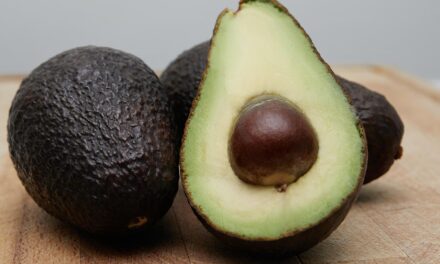Nutritional Profile of Honey: Honey is a natural sweetener made by bees from the nectar of flowers. It is highly valued for its taste and health benefits, being a key ingredient in many traditional remedies and a healthier alternative to refined sugar. Despite its sweetness, honey also contains small amounts of vitamins, minerals, and bioactive compounds that contribute to its nutritional value.
Macronutrients in Honey
Honey is primarily composed of sugars, with a small amount of water and trace proteins. Here’s a breakdown of its key macronutrients:
- Carbohydrates:
- Content: Honey is predominantly made up of carbohydrates, accounting for about 80-82% of its content. The primary sugars in honey are:
- Fructose: 38-40%, the sweetest sugar in honey, responsible for much of its flavor.
- Glucose: 30-35%, a fast-absorbing sugar that provides quick energy.
- Other Sugars: Small amounts of maltose, sucrose, and complex carbohydrates are also present.
- Function: Carbohydrates in honey provide a quick source of energy and fuel for physical activity. Unlike refined sugars, honey has a slightly lower glycemic index (GI), meaning it can cause a more gradual rise in blood sugar levels.
- Content: Honey is predominantly made up of carbohydrates, accounting for about 80-82% of its content. The primary sugars in honey are:
- Water:
- Content: About 17-20% of honey is water. The moisture content of honey varies depending on the type and processing method.
- Function: This small water content helps keep honey viscous and stable for long periods without spoiling.
- Protein:
- Content: Honey contains trace amounts of protein, including enzymes like glucose oxidase, which plays a role in its antibacterial properties.
- Function: While not a significant source of protein, the enzymes contribute to honey’s beneficial properties and stability.
- Fats:
- Content: Honey contains virtually no fat, making it a fat-free sweetener option.
Vitamins in Honey
Although honey is not a major source of vitamins, it does contain trace amounts of several vitamins, contributing to its health-promoting properties:
- Vitamin C (Ascorbic Acid):
- Content: Small amounts of vitamin C are present in honey.
- Function: As an antioxidant, vitamin C supports immune function, skin health, and wound healing.
- B Vitamins: Honey contains small amounts of several B vitamins, including:
- Vitamin B1 (Thiamine): Supports energy metabolism and nerve function.
- Vitamin B2 (Riboflavin): Helps with energy production and the maintenance of healthy skin and eyes.
- Vitamin B3 (Niacin): Aids in digestion, energy production, and maintaining healthy skin.
- Vitamin B5 (Pantothenic Acid): Important for synthesizing coenzymes that help metabolize carbohydrates, fats, and proteins.
- Vitamin B6 (Pyridoxine): Involved in brain development and immune function.
Minerals in Honey
Though honey contains trace amounts of minerals, it can still contribute to daily nutrient intake:
- Calcium:
- Function: Supports bone health and muscle function.
- Magnesium:
- Function: Helps with muscle relaxation, energy production, and maintaining normal nerve function.
- Potassium:
- Function: Regulates fluid balance, muscle contractions, and nerve signals.
- Phosphorus:
- Function: Important for bone health, energy production, and cellular repair.
- Iron:
- Function: Supports red blood cell production and oxygen transport.
- Zinc:
- Function: Aids immune system function and wound healing.
- Manganese:
- Function: Supports metabolism and antioxidant defenses.
- Copper:
- Function: Plays a role in iron absorption and red blood cell formation.
Antioxidants and Bioactive Compounds
Honey is rich in antioxidants and other bioactive compounds that contribute to its health benefits:
- Flavonoids:
- Content: Honey contains several flavonoids, which are potent antioxidants that help neutralize free radicals and reduce inflammation.
- Function: These compounds may contribute to honey’s cardiovascular benefits and its ability to reduce the risk of chronic diseases.
- Phenolic Acids:
- Content: Honey contains phenolic acids like caffeic acid and gallic acid, which provide antioxidant and anti-inflammatory properties.
- Function: They help protect cells from oxidative damage and may reduce the risk of heart disease and cancer.
- Enzymes:
- Glucose Oxidase: Produces hydrogen peroxide when honey is diluted, giving honey its antibacterial properties.
- Invertase and Diastase: Aid in breaking down sugars and contribute to honey’s digestibility.
Calories in Honey
- Calories: One tablespoon (21 grams) of honey provides approximately 64 calories, mostly from carbohydrates.
- Comparison to Sugar: Honey is sweeter than table sugar, so less is needed to achieve the same level of sweetness, potentially reducing total calorie consumption.
Honey is a natural, nutrient-dense sweetener that provides carbohydrates for energy, trace amounts of vitamins and minerals, and a wealth of antioxidants. While not a significant source of vitamins or proteins, its unique blend of bioactive compounds makes it a healthier alternative to refined sugars. When consumed in moderation, honey can offer both health benefits and flavor to your diet.
Find out more about Honey as a superfood
How Chia Seeds Support Health
by fab_brands | January 15, 2025 | nutrition, superfoods | 0 Comments
Chia Seeds as a Superfood
by fab_brands | January 15, 2025 | nutrition, superfoods | 0 Comments
Frequently Asked Questions about Dates
by fab_brands | December 1, 2024 | superfoods | 0 Comments
How Dates Support Health
by fab_brands | December 1, 2024 | superfoods | 0 Comments
Nutritional Profile of Dates
by fab_brands | December 1, 2024 | superfoods | 0 Comments
Frequently Asked Questions about Kale
by fab_brands | November 25, 2024 | superfoods | 0 Comments
How Kale Supports Health
by fab_brands | November 25, 2024 | superfoods | 0 Comments
Nutritional Profile of Kale
by fab_brands | November 25, 2024 | superfoods | 0 Comments
Frequently Asked Questions about Eggs
by fab_brands | November 18, 2024 | superfoods | 0 Comments
How Eggs Support Health
by fab_brands | November 18, 2024 | superfoods | 0 Comments





